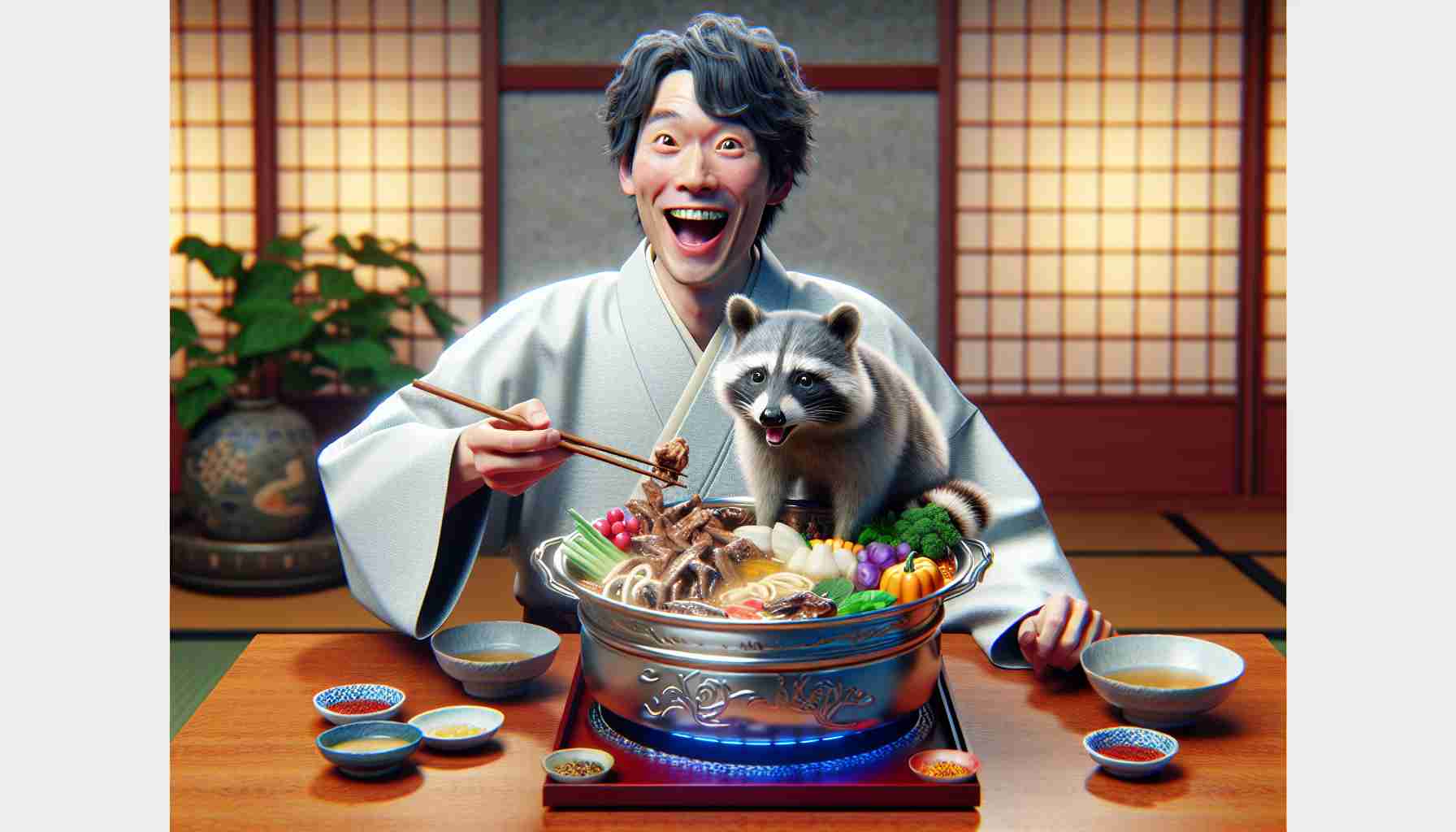- Tanaka Moe, a TV Asahi announcer, recently tried raccoon hot pot, surprising many with its taste.
- The dish sparked curiosity among her followers, provoking reactions of disbelief and interest in exotic cuisine.
- Tanaka is also recognized for her achievements, including passing a real estate certification exam last year.
- Her experience emphasizes the value of trying new things and stepping out of comfort zones.
- Exploring unconventional options can lead to delightful experiences and unexpected rewards.
In a daring culinary escapade, 33-year-old Tanaka Moe, a popular announcer from TV Asahi, shared an eye-opening update on Instagram that has left fans both amazed and amused. During a recent filming for a show, she took a bold step by trying raccoon hot pot for the very first time.
Describing her experience, she likened the dish to the traditional boar hot pot, expressing surprise at how delicious it was. This unexpected choice has ignited a wave of reactions from her followers, with many wondering about the unusual delicacy of raccoon meat. Comments flooded in, ranging from disbelief to curiosity about such exotic cuisine.
Originally from Yamagata Prefecture, Tanaka’s journey has been nothing short of remarkable. After graduating from Meiji University, she joined TV Asahi in 2015, but that’s not all. Last year, she achieved a significant milestone by passing the宅地建物取引士 (real estate transaction) certification on her first attempt, highlighting her diverse skill set.
The takeaway? Embracing new experiences can lead to delightful surprises, even if they seem unconventional. Whether it’s trying a wild dish or tackling a new career challenge, stepping out of your comfort zone can bring unexpected rewards. What will you try next?
Raccoon Hot Pot: The Surprising Culinary Delight Taking Japan by Storm!
Introduction
In a culinary twist that has caught the attention of many, Tanaka Moe, a well-known announcer from TV Asahi, recently ventured into unique gastronomic territory by trying raccoon hot pot for the first time. The dish has stirred up a mix of intrigue and astonishment among her followers, prompting questions about this unconventional cuisine and its implications.
What You Need to Know About Raccoon Hot Pot
Market Insights
Raccoon meat, often consumed in some parts of the world, is characterized by its rich, gamey flavor. In Japan, however, it is not commonly part of mainstream cuisine, which raises curiosity about its nutritional value and potential marketability. As culinary trends evolve, there may be a growing interest in exotic meats, providing opportunities for niche restaurants and food markets.
Health Aspects
Raccoon meat is high in protein and can be considered a sustainable option compared to more traditional meats, provided it is sourced responsibly. However, due to the animal’s potential for carrying diseases (such as raccoon roundworm), it’s crucial that it is prepared and cooked properly to ensure safety.
Sustainability and Ethical Considerations
The increasing interest in wild game, including raccoon, has sparked discussions on sustainability. Consuming more localized and less common meats could help reduce the carbon footprint associated with cattle and poultry farming. Nonetheless, ethical hunting practices and animal welfare must be prioritized in this culinary trend.
Pros and Cons of Trying Raccoon Hot Pot
Pros:
– Delicious Flavor Profile: Raccoon meat has been likened to boar, boasting a rich and gamey taste.
– Nutrient Dense: High in protein, raccoon meat can be a nutritious alternative.
– Sustainable Eating: If sourced ethically, it can contribute to environmental sustainability.
Cons:
– Health Risks: Potential for zoonotic diseases poses a risk if not properly handled.
– Uncommon Ingredient: Sourcing raccoon meat might be challenging for some consumers.
– Cultural Acceptance: Eating raccoon may not sit well with everyone due to cultural perceptions.
Frequently Asked Questions
Q1: What does raccoon hot pot taste like?
A1: Many diners describe raccoon meat as having a rich, gamey flavor similar to boar, making it an unexpected delight for those willing to try it.
Q2: Is raccoon meat safe to eat?
A2: Yes, raccoon meat can be safe to eat if sourced from healthy animals and cooked properly to eliminate any potential pathogens. Always consult food safety guidelines.
Q3: How can I prepare raccoon meat at home?
A3: Preparation typically involves slow cooking methods like stewing or using in hot pots, allowing the flavors to develop. It is essential to ensure it is sourced from a reputable supplier.
Explore The Culinary World Further
Discover more innovative food trends and unique culinary experiences by visiting Food Network, where culinary enthusiasts share recipes and exploration tips!
Conclusion
Tanaka Moe’s raccoon hot pot experience serves as a reminder that culinary adventures can lead to delightful surprises. As more individuals explore unconventional dishes, the culinary landscape continues to evolve, revealing new flavors and possibilities in our diets. Embracing unique experiences, like trying raccoon hot pot, might just inspire many to step out of their culinary comfort zones. What will you dare to try next?
